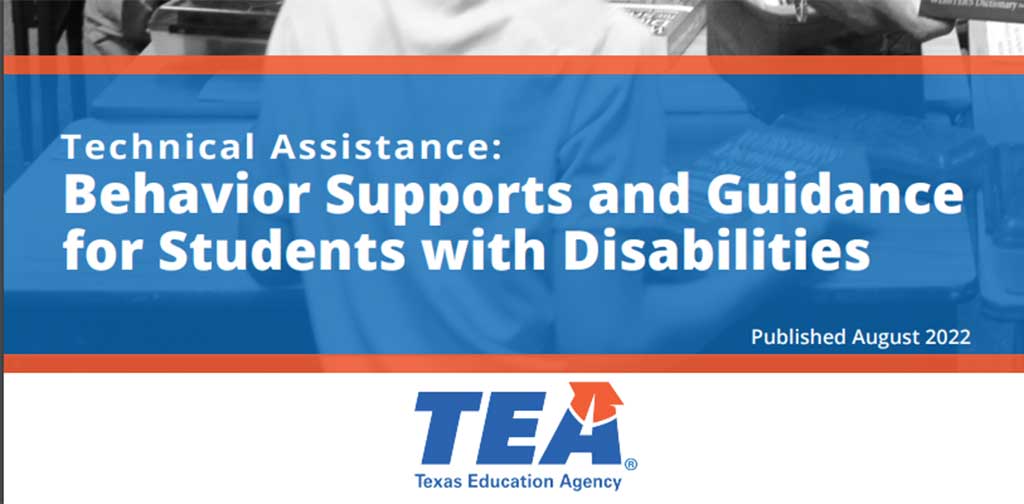The Individuals with Disabilities Education Improvement Act (IDEA 04), the 2004 reauthorization of the IDEA, guarantee all students with disabilities between the ages of 3 and 21 the right to a free, appropriate public education designed to meet each student’s individual needs. There are six principles under IDEA that guarantee the rights of children with disabilities and their families.
1. Free Appropriate Public Education (FAPE)
Free – at no cost to parents
Appropriate – suited to the needs of the child
Public – provided or paid for by the public school system
Education (including extracurricular activities) – what this law is all about!
2. Appropriate Evaluation
- Evaluators must be knowledgeable and trained.
- A variety of instruments and procedures must be used to gather information about the student. (i.e. No single person, no single test makes the decision for your child. All decisions are team decisions.)
- Tests and other procedures must be selected and administered so as not to be discriminatory on a racial or cultural basis.
3. Individualized Education Program
The term “individualized education program” or “IEP” means a written statement for each child with a disability that is developed, reviewed and revised according to the law.
4. Least Restrictive Environment
The presumption is that children with disabilities are most appropriately educated with their non-disabled peers. Special classes, separate schooling, or other removal of children with disabilities from the regular educational environment should occur only when the nature or severity of a child’s disability is such that education in regular classes with the use of supplementary aids and services cannot be achieved satisfactorily.
5. Parent and Student Participation in Decision Making
Ways in which parents participate:
- give consent for evaluation and initial placement of their child
- provide information about their child during evaluations
- are a part of the group that makes the decision as to eligibility
- are a part of the group that decides educational placement
- provide informed consent for reevaluation
- participate in all meetings with respect to evaluation, identification, educational placement in the provision of FAPE to their child
- receive progress reports and participate in the revision of the IEP
- notify the public agency if they intend to remove their child from the public school and place him or her in a private school at public expense or if they intend to file a due process complaint
Ways in which student participates:
- helps to design the IEP
- expresses preferences and interests, particularly during transition planning (transition service needs must be included in the IEP at age 16 — the student must be included in the transition planning)
6. Procedural Safeguards:
As the parent of a child who may receive special education, you have certain rights, which are guaranteed by IDEA as amended in 2004. The rights include:
Prior written notice – (must be in your native language) must be provided to you a reasonable time before the school district proposes, refuses to initiate, or changes the identification, evaluation, educational placement or provision of a free appropriate education to your child.
Informed parent consent – you must be fully informed of all information relevant to the activity for which consent is sought, understand and agree to the carrying out of the activity, and that written consent is voluntary and may be revoked at any time.
Access to all educational records – you have the right to inspect, review and receive copies of all education records with respect to the identification, evaluation and education placement of your child, and to review records without any unnecessary delay and prior to any meeting regarding an IEP or hearing relating to the identification, evaluation or placement of your child. This must happen no later than 45 days after you request to see the records.
Evaluation Procedures – you have the right to a full and individual evaluation of your child’s educational needs prior to initial placement in special education. Your child should be assessed in all areas of suspected disability, and the evaluation must be based on a variety of assessment tools, including information provided by parents. The assessment must be made by a multidisciplinary group, including at least one person who is knowledgeable in the area of suspected disability. Your child must be reevaluated at least every three years or more frequently if conditions warrant, or if you or your child’s teachers request it.
Independent educational evaluation (IEE) – you have the right to request an independent educational evaluation at public expense if you disagree with the educational evaluation provided by the school district. The school district must provide you with information upon request as to how and where to obtain an independent educational evaluation and ensure that the criteria under which the evaluation is obtained, including the location of the evaluation and the qualifications of the examiner, are the same as the criteria that the school district uses when it initiates an evaluation. Before paying for such evaluation, the school district may initiate a due process hearing to show that its evaluation is appropriate. If you obtain an independent educational evaluation at your own expense, the school district must consider the results of the independent educational evaluation in any decision it makes about your child’s educational program.
Private school placement by parents – the school district is not required to pay for the cost of education, including special education and related services, for your child at a private school or facility if the school district has made a free appropriate public education available to your child and you choose to place your child in the private school. However children voluntarily enrolled in private schools for purposes other than FAPE may continue to receive special education and related services subject to financial limits and location options prescribed in the IDEA.
Surrogate parents – the school district appoints a surrogate parent when the parents of the child are not known, if after reasonable efforts, no parent can be located, or the child is a ward of the state. The surrogate parent protects the rights of the child in all matters relating to FAPE.
Dispute resolution – every attempt should be made to resolve differences with the local school district as soon as they arise. If they cannot be resolved, you may request mediation or a due process hearing. (Mediation or due process may be requested by parents OR the school district).
Mediation – a process to assist you and the school in resolving disagreements regarding a student’s special education program. A trained mediator works with both parties to guide them toward a mutually satisfactory solution in the best interest of the student, at no cost to parents.
Due process hearings – an administrative hearing on any matter relating to the proposal or refusal of a school district to initiate or change the identification, evaluation, educational placement or free appropriate public education of a child. The hearing must be conducted by an impartial hearing officer, and scheduled at a time and place reasonably convenient to parents.
Civil action – any party who feels aggrieved by the findings and decisions of an independent hearing officer may appeal to a district court. An appeal must be filed within 30 calendar days after receiving written certified notice of the hearing decision.
Attorney’s fees – attorney’s fees may only be awarded by a court and must be calculated at the community rate. Attorney’s fees may not be awarded for legal services performed after a written offer of settlement if the offer is made any time more than 10 days before the hearing begins, the offer is not accepted within 10 days and the court finds that the relief obtained by you is not more favorable than the settlement offer. Attorney’s fees may be awarded to a parent who prevails and is substantially justified in rejecting the settlement offer. Attorney’s fees may not be awarded for legal services relating to any meeting of the IEP team unless the meeting is convened as a result of an administrative proceeding or judicial action.
Complaints – The Texas Education Agency (TEA) has established procedures to provide for the filing of complaints by individuals or organizations alleging that a school district has failed to follow state and/or federal law in providing a student with disabilities a free appropriate public education. To file a complaint, the complainant must send a written and signed complaint to TEA.
Adapted from WPIC, Wyoming Parent Training & Information Center



